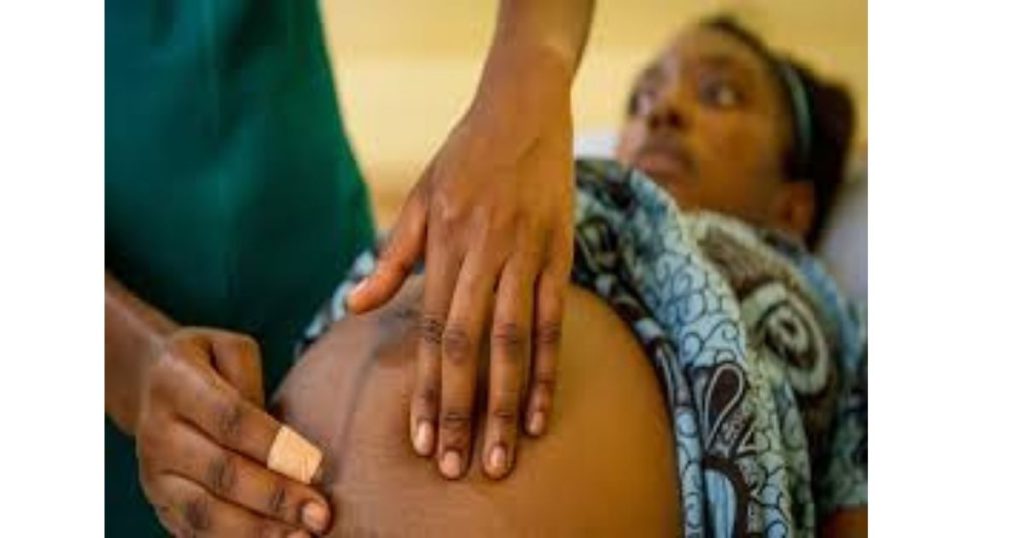The Women’s Centre of Jamaica Foundation (WCJF) is partnering with the National Family Planning Board (NFPB), on its Teenage Pregnancy Prevention Campaign, dubbed ‘Live Life Before You Give Life’.
The campaign is aimed at preventing pregnancy, especially second pregnancies, in adolescent girls. WCJF Executive Director, Dr Zoe Simpson, said the Foundation is pleased to have been included in the campaign, as it is very relevant to the work of the organisation.
“We are happy to be partnering with the NFPB with this campaign because it fits snugly into the work that we do to delay second pregnancies. Yes, we are concerned about the first pregnancies also, but the second pregnancies, we recognise, will spike the rate of adolescent pregnancy in Jamaica,”
Dr Simpson said.
She highlighted the WCJF’s success story regarding the prevention of second pregnancies and pointed out that the campaign will work in tandem with the measures, to ensure success. The Executive Director informed that the second pregnancy rate at the WCJF, has remained below two per cent since its inception.
“This is primarily because we have included contraceptive counselling in the intervention and the encouragement of the girls to use a contraceptive method correctly,”
she explained. Dr Simpson, however, pointed out that this requires parental consent, which the Foundation must get prior to engaging the girls, as many of their cohort are under the age of 17.
“Because the girls are minors primarily, we have the conversation with the parents and we receive the consent from the parents to have the conversation with their girls and the consent of the parents to introduce the girls to the use of a contraceptive method,”
the Executive Director explained.
She added that the girls, for the most part, recognise the worth of their education and that it is something that the WCJF encourages them to prioritise.
She also highlighted the fact that having a solid education is usually a deterrent and is helpful in reducing the rate of adolescent pregnancy.
“So the girls prioritise their education, they return to school and the research has shown us that the girls who enrol in this programme of intervention, delay having a second child until much later in their lives,”
Dr Simpson said.
She added that the majority, approximately 70 per cent of them, complete their secondary education, while pointing out that one of the factors that contribute to the second-time dropout of the girls from high school, would be a second pregnancy.
She pointed out, however, that WCJF is not seeing this in their population (graduates) “because we encourage the girls to use the long-term contraceptive methods and we partner with the NFPB to receive the methods”.
Dr Simpson added that the girls are also encouraged to go to the health centres in their communities to receive the contraceptive methods in the youth-friendly spaces that are being promoted
Another methodology that has been adopted by the WCJF in preventing second pregnancies is to work with the young men who impregnate the girls.
“We also emphasise the fact that they, too, are an important part of the campaign to reduce adolescent pregnancies. We encourage the young men, therefore, to advance their own person, to advance their education and to become responsible parents, to take responsibility for their sexuality and also to support the girls as much as they can in terms of delaying sexual intercourse together inasmuch as they are friends,”
she stated.
Dr Simpson said that over the many years, the WCJF has advocated for the girls to be brought into the use of the long-term contraceptive method
“because we can well appreciate that adolescents are perhaps not given to using the pills that you have to take every day”.
One viable alternative she states is the Jadelle implant, which, once inserted, will work for an extended period and the girls are likely to forget about it. She said that the girls are also encouraged to become responsible in terms of following up with their health centre appointments and ensuring that everything is in place and that they are protected if they are sexually active. The Executive Director, however, pointed out that there are some girls who are not willing to use a contraceptive method and that at the WCJF their choices are respected. She further noted that in as much as it is commonly believed that abstinence is not a reliable method,
“We have found that it is for a significant percentage of the population, who recognise the consideration that abstinence also makes sense, so if a girl doesn’t want to use a method, she has that right and we respect that right”.
“We really don’t want any of the girls to have a second pregnancy anytime soon. We, therefore, hold hands with the NFPB and walk together to encourage the girls to live their lives before they give a life,”
she said.




